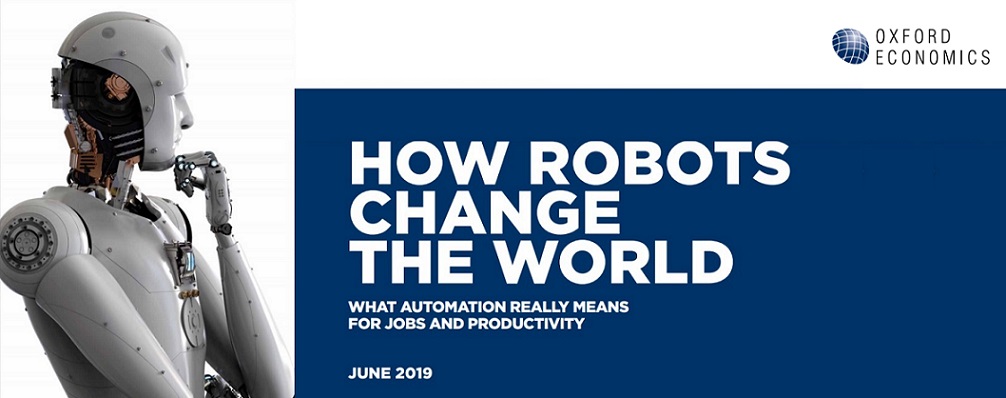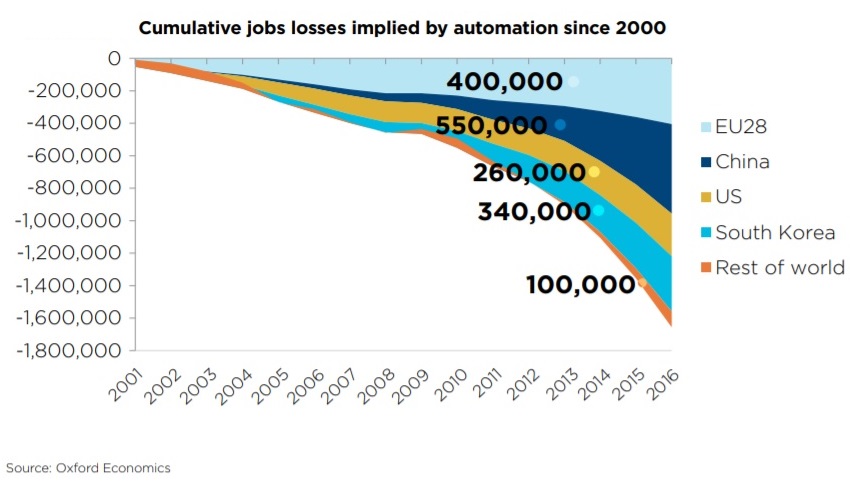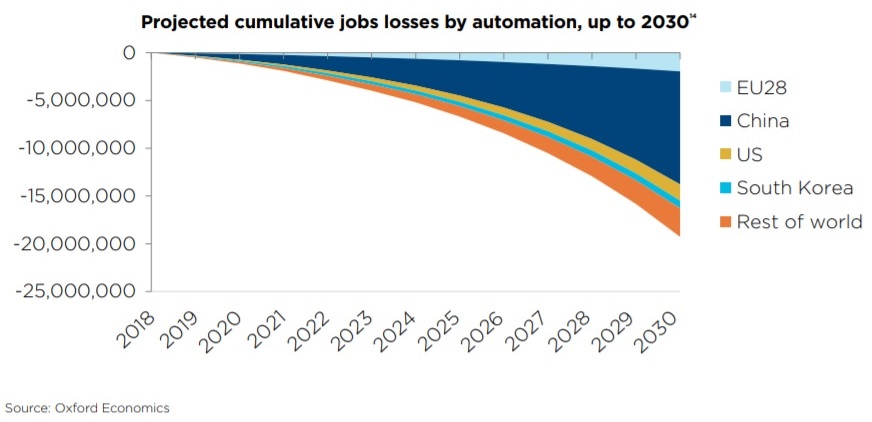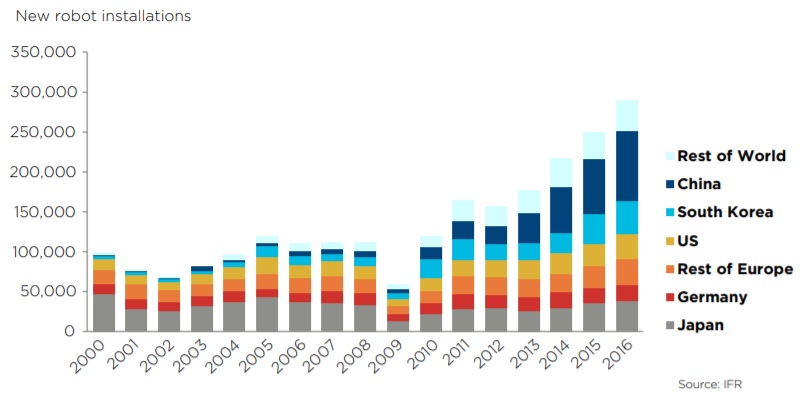Oxford Economics: „up to 20 million manufacturing jobs are set to be lost to robots by 2030”

The number of industrial robots in use tripled over the past two decades. It is set to multiply nearly 10-fold to 20m by 2030. Productivity and growth will be boosted, but up to 20m manufacturing jobs are set to be lost by 2030. Negative effects hit lower skilled workers and poorer regions hardest, aggravating social and economic stresses, and posing daunting policy challenges.
The robotics revolution is rapidly accelerating, as fast-paced technological advances in automation, engineering, energy storage, artificial intelligence and machine learning converge. The far-reaching results will transform the capabilities of robots and their ability to take over tasks once carried out by humans.
Already, the number of robots in use worldwide multiplied three-fold over the past two decades, to 2.25 million. Trends suggest the global stock of robots will multiply even faster in the next 20 years, reaching as many as 20 million by 2030, with 14 million in China alone. The implications are immense, and the emerging challenges for policy-makers are equally daunting in scale.
Robot use in services is also accelerating, boosted by AI.
The rise of the robots will boost productivity and economic growth. And it will lead to the creation of new jobs in yet-to-exist industries. But existing business models in many sectors will be seriously disrupted and millions of existing jobs will be lost. We estimate up to 20 million manufacturing jobs are set to be lost to robots by 2030.


Since 2010, the global stock of robots in industry has more than doubled: as many robots were installed in the past four years as over the eight previous. Approximately every third robot worldwide is now installed in China, which accounts for around one-fifth of the world’s total stock of robots.

For the purposes of this study we are considering robots only as physical machines, and not including the already-popular service-industry software like robotic process automation (RPA) that can speak, hear, read, conduct transactions, automate processes, and so on.
Download the report to learn more: HOW ROBOTS CHANGE THE WORLD – what automation really means for jobs and productivity
Dariusz Mazurkiewicz – CEO at BLIK Polish Payment Standard
Banking 4.0 – „how was the experience for you”
„To be honest I think that Sinaia, your conference, is much better then Davos.”
Many more interesting quotes in the video below:












